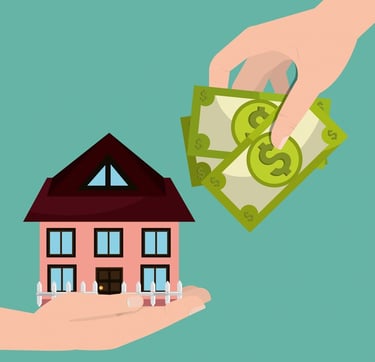Understanding the Real Estate Market
Analyze local market trends and fluctuations to determine the best time to sell your rental property. Fluctuations in property prices can significantly influence your decision to sell, as rising property values may indicate a favorable time to consider selling.
Understand how local market conditions impact rental property value and adjust your selling strategy accordingly.
Keep an eye on the real estate market to identify optimal selling opportunities and maximize your return on investment.
Impact of Local Market Conditions on Rental Property Value
Local market conditions play a pivotal role in determining the value of rental properties. A robust local economy, characterized by low unemployment rates and a growing population, can drive up demand for rental properties, subsequently increasing property values. Conversely, a declining local economy, high unemployment rates, and a shrinking population can lead to decreased demand and lower property values.
Real estate investors should vigilantly monitor local market conditions, including job growth, new developments, and changes in local government policies. A property manager can be instrumental in keeping investors informed about these trends, enabling data-driven decisions about their rental properties.
For instance, if a new major employer is setting up operations in the area, it might be wise to hold onto a rental property, as the demand for housing is likely to surge. On the other hand, if a significant employer is relocating out of the area, it may be prudent to consider selling the rental property, as the demand for housing could diminish.
Financial Considerations and Rental Income
Negative cash flow can significantly impact your investment property's profitability, making it a key factor in deciding when to sell. Additionally, capital gain taxes can also impact overall profitability and should be considered when deciding to sell.
Property taxes can greatly affect your rental property's profitability, and selling may be a viable option if taxes become too high. Real estate investors need to carefully evaluate these elements when deciding whether to purchase or sell a rental property. Rental property investors must consider the impact of capital gain taxes on their financial strategy.
Maintenance costs can add up quickly, and if they become too much to handle, selling your rental property may be the best decision.
If you've determined owning a rental property no longer fits in with your lifestyle or investment objectives, a company like Grace Hill Solutions can help you with a fast and fair cash offer. We'll also take care of all closing costs
Negative Cash Flow and Its Impact on Investment Property
Negative cash flow occurs when the expenses associated with a rental property exceed the rental income it generates. This situation can be particularly challenging for real estate investors, as it can lead to financial losses and a decrease in property value.
Several factors can contribute to negative cash flow, including high property taxes, substantial maintenance costs, and insufficient rental income. Real estate investors need to carefully evaluate these elements when deciding whether to purchase or sell a rental property.
For example, if a rental property is situated in an area with exorbitant property taxes, generating enough rental income to cover the expenses might be difficult. In such cases, it may be wise to consider selling the property and investing in a different location with lower property taxes to avoid ongoing financial strain.
Investment Strategy and Goals
If your rental property no longer aligns with your investment strategy, it may be time to consider selling to a cash buyer like Grace Hill Solutions and diversifying your portfolio.
If you've found a better use for the proceeds from selling your rental property, it may be a good time to sell and reinvest.
Diversifying your investment portfolio and reducing risk can be a key factor in deciding when to sell your rental property.
If you no longer have positive cash flow or passive rental income, your real estate investment may no longer be serving the purpose you originally intended, other than perhaps providing tax benefits. If so, it may make the most financial sense to sell to avoid losing money.












